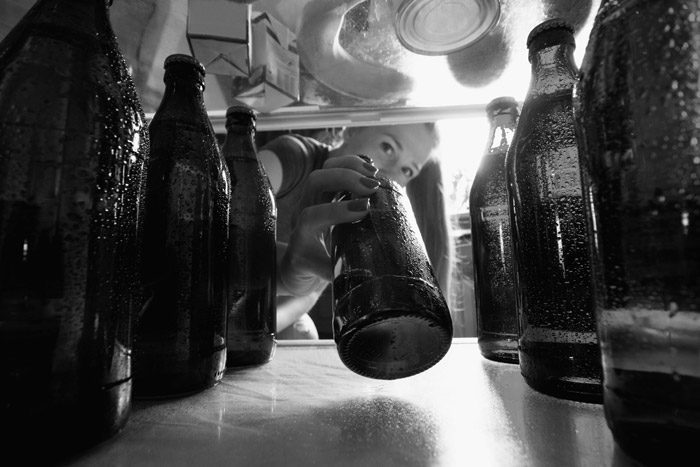Drinking More During COVID-19? Blackouts Are a Sign You May Need Addiction Treatment
 Growing evidence suggests that the uncertainty surrounding the COVID-19 coronavirus pandemic is leading to an increase in risky drinking behavior. According to a recent Nielsen report, sales of at-home alcohol have spiked 27% since the start of the pandemic. The Department of Health and Human Services and the Substance Abuse and Mental Health Administration report that the number of people seeking treatment for alcohol abuse is increasing steadily throughout the United States, with the greatest percentage in areas where the coronavirus has hit hardest.
Growing evidence suggests that the uncertainty surrounding the COVID-19 coronavirus pandemic is leading to an increase in risky drinking behavior. According to a recent Nielsen report, sales of at-home alcohol have spiked 27% since the start of the pandemic. The Department of Health and Human Services and the Substance Abuse and Mental Health Administration report that the number of people seeking treatment for alcohol abuse is increasing steadily throughout the United States, with the greatest percentage in areas where the coronavirus has hit hardest.
Alcohol-Induced Blackouts
While enjoying a drink or two on occasion isn’t a problem, drinking to cope with negative emotions can easily spiral out of control. If you’re drinking enough that you’re experiencing alcohol-induced blackouts, it’s time to consider whether addiction treatment is needed.
Understanding Why Blackouts Are Dangerous
A blackout occurs when someone drinks so heavily that they trigger memory loss. Some blackouts are partial, which means that the missing memories can eventually be recovered when the person is provided either visual or verbal cues. Others are permanent, meaning that the missed memories will never be recovered. Partial blackouts are much more common, but both types present similar medical risks.
Alcohol tolerance varies among individuals, but you typically need a BAC of 0.15 or higher to be at risk for an alcohol-related blackout. At this level, there is a real danger of alcohol poisoning. Although researchers believe genetics play a role in who experiences blackouts after heavy alcohol consumption, a history of binge drinking, drinking on an empty stomach, or combining alcohol with other drugs such as opioids can increase the risk of experiencing a blackout.
Blackouts last until a person’s body has eliminated all the alcohol they have consumed. If they continue drinking while experiencing a blackout, they can become unable to form new memories for several hours or even days. Additionally, since it’s almost impossible for a casual observer to tell the difference between someone who is heavily intoxicated and someone who is experiencing a blackout, the condition may not be discovered until the person is asked about events at a later date and finds themselves unable to recall important details. This increases the risk of unprotected sex, drunk driving, and other forms of dangerous behavior.
Questions to Ask Yourself
Although experiencing a blackout is a cause for concern, it doesn’t necessarily mean you have a drinking problem. Sometimes, a blackout is simply an example of poor judgment brought on by peer pressure or a traumatic situation.
To know if you should seek addiction treatment, you need to take a more comprehensive look at your relationship with alcohol. Ask yourself the following questions:
- Are you drinking more often than you used to?
- Has your tolerance for alcohol increased to the point where you need to drink more to feel even slightly buzzed?
- Have you tried to quit drinking or reduce the amount of alcohol you consume with no success?
- Do you frequently drink alone?
- Is drinking alcohol your automatic choice for coping with stress or other unpleasant emotions?
- Do you only feel “normal” when you’re drinking?
- Is your drinking a source of conflict with friends or family?
- Do you lie when confronted about how often or how much you drink?
- Have you gotten into trouble at work because of your drinking?
- Are you having financial difficulties due to the amount of money you spend on alcohol?
- Do you mix alcohol with over the counter or prescription medications?
- Do you ever experience withdrawal symptoms such as headache, nausea, vomiting, tremors, or anxiety when you are in a situation where you can’t drink?
The more “yes” answers you give, the greater the likelihood becomes that you have a substance use disorder in need of treatment.
Getting the Help You Need to Move Forward
The thought of seeking treatment during a pandemic can be scary, but it’s important to remember that addiction is a progressive illness. Without access to evidence-based treatment, your condition will only continue to deteriorate. Since addiction isn’t a character flaw or a problem caused by a lack of willpower, you can’t turn things around without help.
As an essential business, Waypoint Recovery Center’s South Carolina alcohol addiction treatment center will remain open to serve clients through the COVID-19 pandemic. We are taking all CDC-recommended safety precautions so we can continue to effectively serve those who want to start building the foundation for lasting sobriety. Now is your time to enter recovery.




